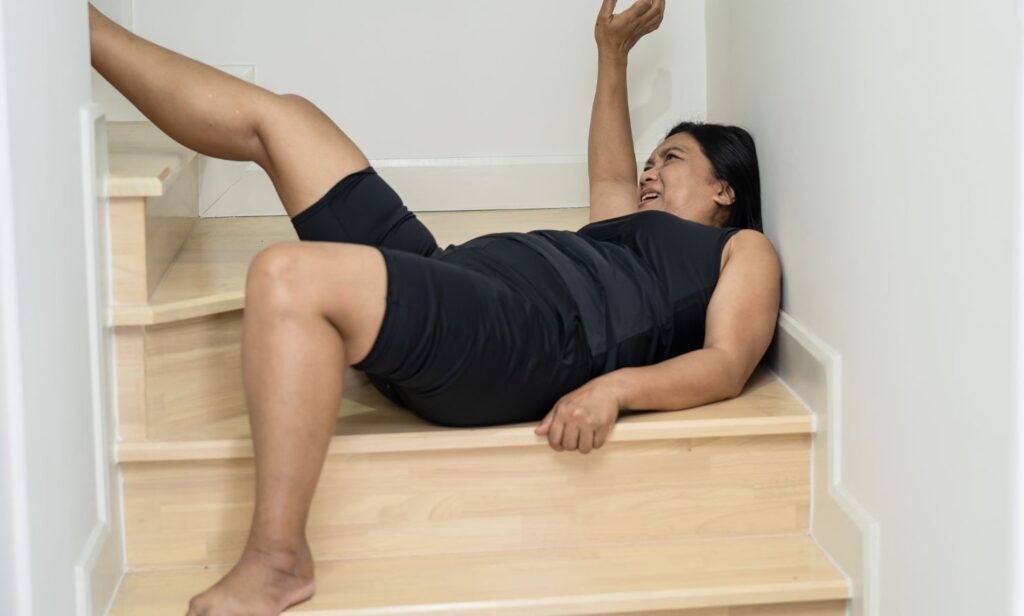
Falls are common among older women as they age. One significant concern that often arises for women over 50 is an increased risk of falling.
Falls can have severe consequences, ranging from minor injuries to life-threatening situations. The CDC reports that one in five falls causes serious injuries, such as broken bones or head injuries. Fear of falling can also limit activity and quality of life.
Even healthy women over 50 can fall, threatening their independence. Sometimes, falls may not cause injuries, but they can cause you to lose confidence and fear falling. This can make you more inactive, increasing your fall risk.
For fall prevention, it is important to know why people fall. So let’s explore why women over 50 are prone to falls and how to reduce fall risk.
Why Women Over 50 Are Prone To Fall
According to the Centers for Disease Control and Prevention, up to 35% of women over 50 get injuries from falls every year. Another study shows that falls are the leading cause of traumatic brain injuries among older adults.
Every year, about 300,000 older Americans are hospitalized because of hip fractures. More than 95% of these fractures are caused by falls.
For older Australians, falls are the main reason they get hurt and die, accounting for 77% of all injury hospitalizations and 71% of injury deaths in this age group.
For safety and prevention, it is important to know what the risk factors are.
Why are women over 50 prone to falls? If you have one or more of these risk factors, you are at a higher risk of falling multiple times.
Here are some reasons why women over 50 are prone to falls:
1. Age-related factors
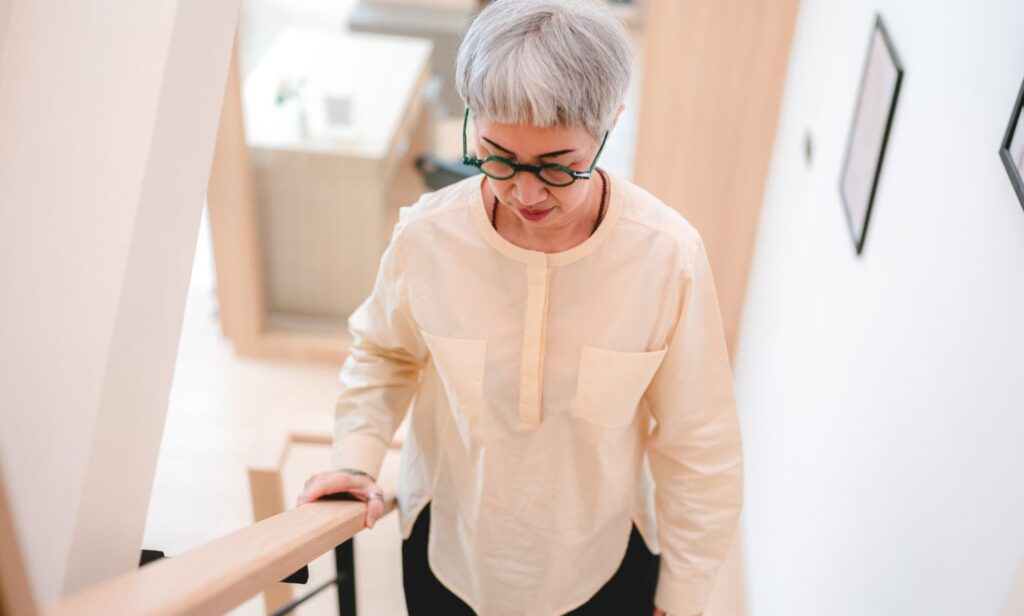
Aging is one of the main reasons women over 50 are prone to falls. As you get older, your body goes through changes that can make you more likely to fall. Your reflexes may slow down as you get older, which can make it harder to get back on your feet after a fall or sudden movement.
It is also easier to fall when you have age-related conditions like arthritis, neuropathy, or cognitive impairments that make it harder to move around, coordinate your movements, or make decisions.
2. Hormonal changes
Hormonal fluctuations are a natural part of the aging process for women. As women go through menopause, their estrogen levels drop, which can make it harder for them to keep their balance and coordinate their movements.
These changes can make you much more likely to fall, especially if you do not make the right changes to your lifestyle and get medical help.
3. Osteoporosis
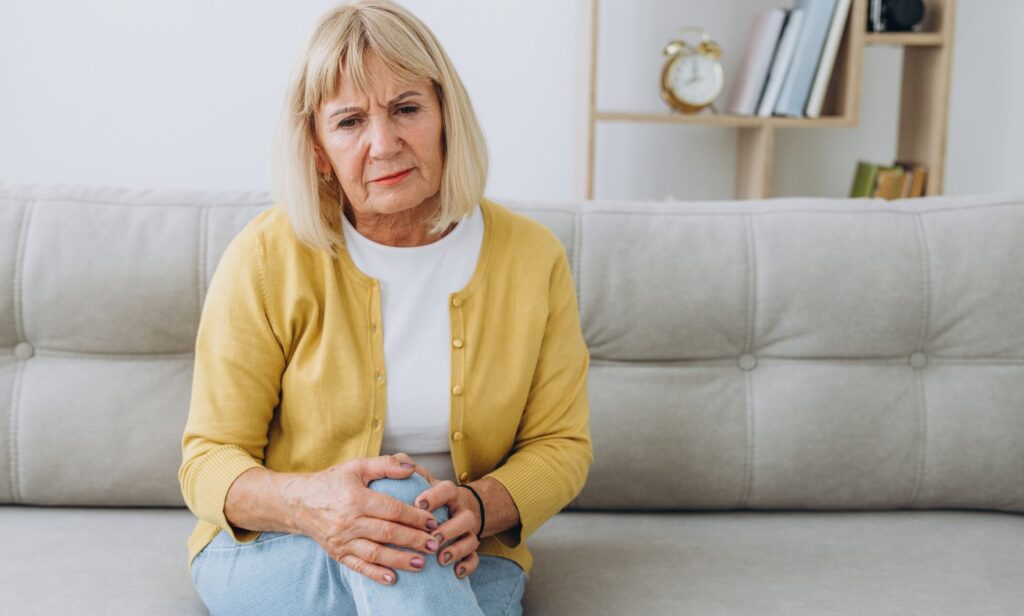
Osteoporosis, a condition characterized by low bone mass and deterioration of bone tissue, is more prevalent in women over 50. This condition can make your bones weaker and more likely to break, even from small falls.
Osteoporosis often goes undetected until a fracture occurs. Thus, it is important to get regular bone density screenings and take preventative steps to keep your bones healthy.
READ ALSO: 8 Ways to Prevent Bone Loss During and After Menopause
4. Vision and hearing changes
Vision and hearing changes that come with getting older can also make women over 50 more likely to fall. If you have trouble seeing, it can be hard to notice obstacles or changes in the terrain.
If you have trouble hearing, it can be hard to pick up on sounds that could warn you of possible dangers. Getting regular eye and ear exams and taking the right steps to fix problems can help lower these risks.
5. Muscle weakness
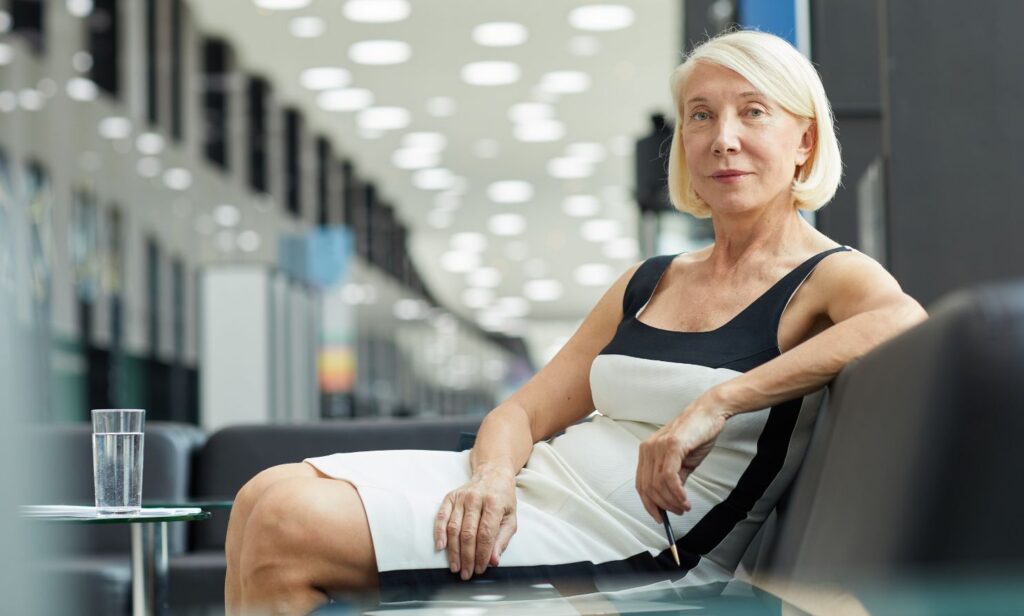
As you get older, your muscle mass and flexibility tend to decrease. This can make it harder to move around and keep your balance. If you have weaker muscles in your back, legs, or core, it can be harder to keep your balance and posture right, which can make you more likely to fall.
Additionally, less flexibility can restrict your range of motion, which can make it harder to get back on your feet after losing your balance or get around obstacles in your environment.
6. Chronic health conditions
Chronic diseases like diabetes, Parkinson’s disease, stroke, and arthritis can make it hard to move around and keep your balance. These health problems can make you feel dizzy, numb, or weak, which can make it harder to stay stable and raise your risk of falling.
Medications, physical therapy, and changes to your lifestyle that help control these conditions are very important for lowering the risk of falling.
READ ALSO: How Regular Health Check-ups Can Save Your Life In your 50s
7. Medications
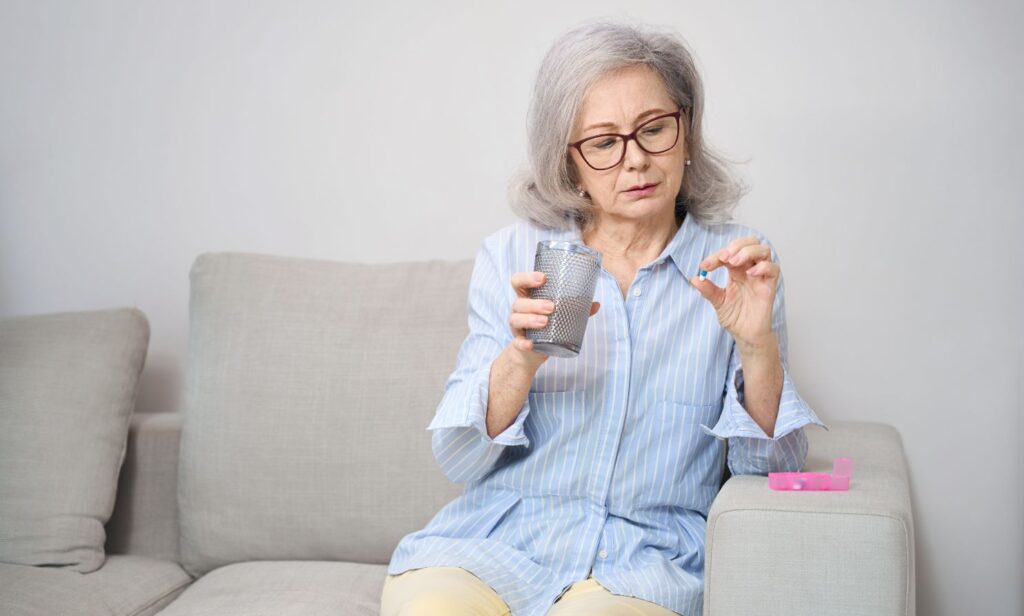
As a side effect, some prescription and over-the-counter drugs can make you more likely to fall. Some of these side effects could include feeling dizzy, sleepy, or less able to coordinate your movements.
It is important to talk to your doctor about the possible risks and carefully follow the dosage instructions to keep your balance and mobility as high as possible.
8. Environmental factors
Where you live can have a big effect on how likely you are to fall. Some things that can make you more likely to trip or lose your balance are dim lighting, a cluttered space, loose rugs, and surfaces that are easy to slip on.
Getting rid of these environmental hazards by making changes to your home, making sure it has enough light, and getting rid of clutter can help make your living space safer and lower your risk of falling.
READ ALSO: 8 Home Decor Tips for Aging Eyes
9. Foot problems
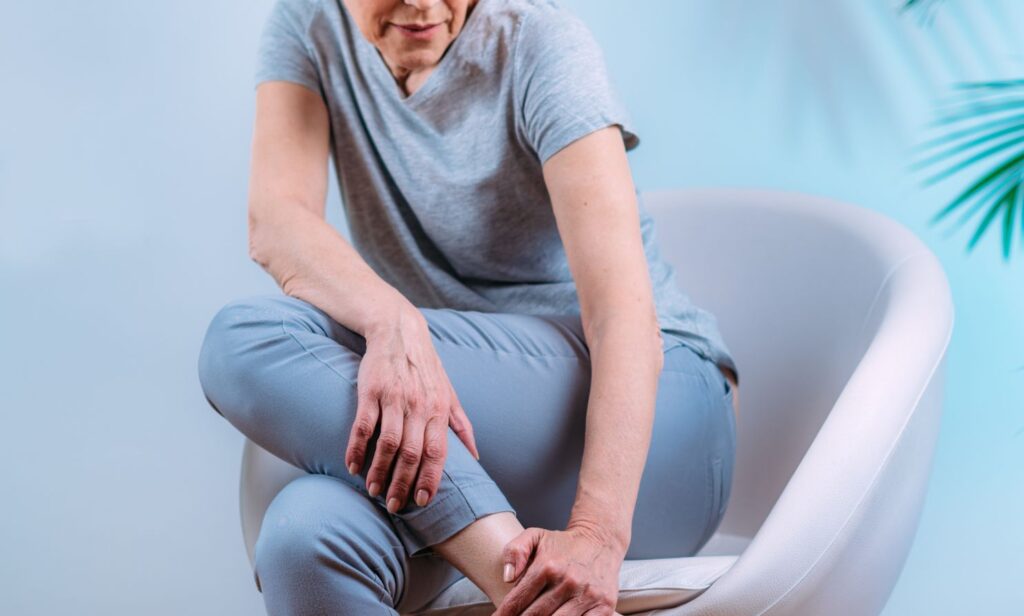
Fungal growths, corns, and calluses on the feet can become more common as you get older. These conditions can make it hard to wear the right shoes, which can be uncomfortable and make you more likely to trip or lose your balance.
Neuropathy and other conditions can also make it hard to feel the ground beneath your feet, which makes you even more likely to trip and fall.
You can lessen these problems by taking good care of your feet and wearing shoes that fit well.
10. Lack of physical activity
As you get older, it is important to keep up your strength, flexibility, and balance by staying active. But many women over 50 may stop moving for a variety of reasons, such as long-term health problems, a fear of falling, or a lack of motivation.
This lack of activity can make you less fit and less mobile, which can make you more likely to fall.
Regular exercise, like strength training, balance exercises, and low-impact activities like swimming or walking, can help you get in better shape and lower your risk of falling.
READ ALSO: Effective Stretching Workouts to Improve Your Flexibility & Mobility
Other Risk Factors for Falls in Women Over 50
Certain conditions can increase the likelihood of a fall, including:
- Depression: Some antidepressants can increase the risk of falling.
- Diabetes: Blood sugar changes can make you feel faint, and diabetes can also affect vision and reduce sensation in your feet and legs.
- History of Falls: If you’ve fallen more than once in the past six months, you’re more likely to fall again.
- Low Blood Pressure: Naturally low blood pressure can cause light-headedness, dizziness, or unsteadiness while moving.
- Postural Hypotension: A drop in blood pressure when changing positions, like sitting to standing, can cause dizziness. This can be due to medical conditions or medication side effects.
Understanding these risk factors can help you take steps to prevent falls and stay safe.
How to Reduce Fall Risk in Women Over 50
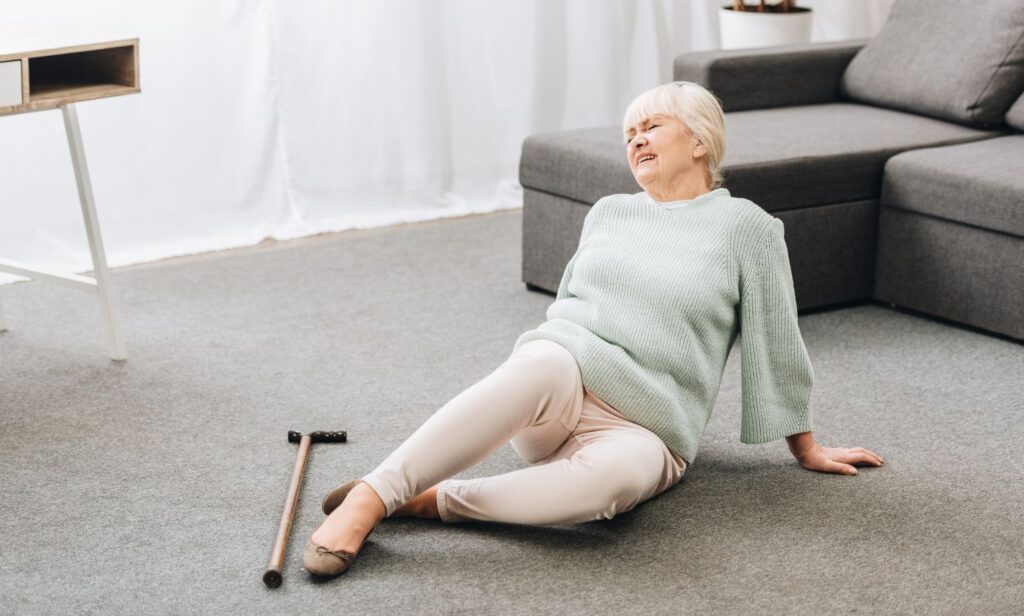
Serious injuries can happen from falls, but there are easy things you can do to prevent them. Here’s how:
- Improve your strength, flexibility, and balance by doing things like tai chi, water workouts, or walking. Consult your doctor if you’re afraid of falling while exercising.
- Take out the old mats and fix any carpets that are torn or stretched.
- Put glow-in-the-dark switches and night lights in the bathroom and bedroom to make sure your home is well-lit. Keep a lamp by your bed.
- Wear sturdy, well-fitting shoes with non-slip soles. Avoid shoes with slippery bottoms, high heels, and floppy slippers.
- Use assistive devices like canes, walkers, handrails, grab bars, and shower seats. Consult your doctor or an occupational therapist for advice.
- Stand up slowly after lying down or sitting to prevent dizziness.
- Remove clutter, secure loose rugs, and fix uneven floors to make your home safer.
- Put nonslip mats in the bathroom and keep things that you use often close at hand.
- Install handrails or a seat in the shower or bath. Put tape that does not slip on the edges of stairs and steps.
- Keep outdoor paths clear of moss, slime, and fallen leaves.
- Maintain a healthy diet with a variety of foods, especially in hot weather. Consider food supplements if you are underweight.
- Talk to your doctor about the medicines you take, because some of them can make you tired or dizzy.
- Use a draft excluder on doors instead of loose fabric that could cause someone to trip.
Closing Thoughts
As a woman over 50, you can take steps to maintain your independence and quality of life by preventing falls and learning about the reasons behind them.
You can feel confident in this stage of life and lower your risk of falling if you deal with age-related issues, take care of long-term health conditions, and take an active role in preventing falls.
Taking proactive measures will help you stay safe, confident, and independent as you navigate through the golden years.
♡ Love ♡,

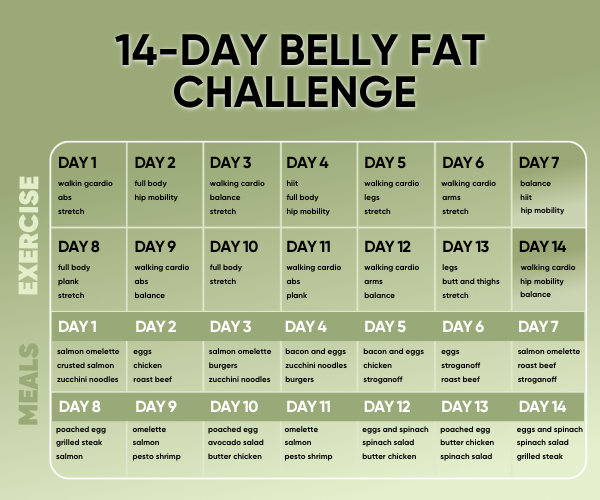
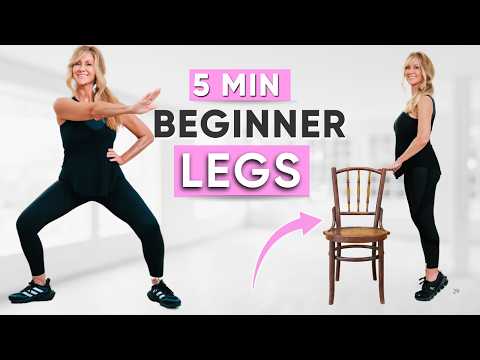
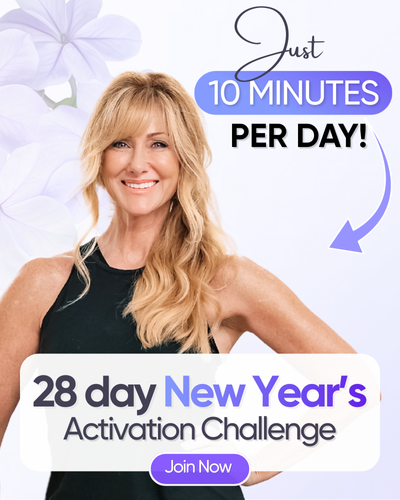


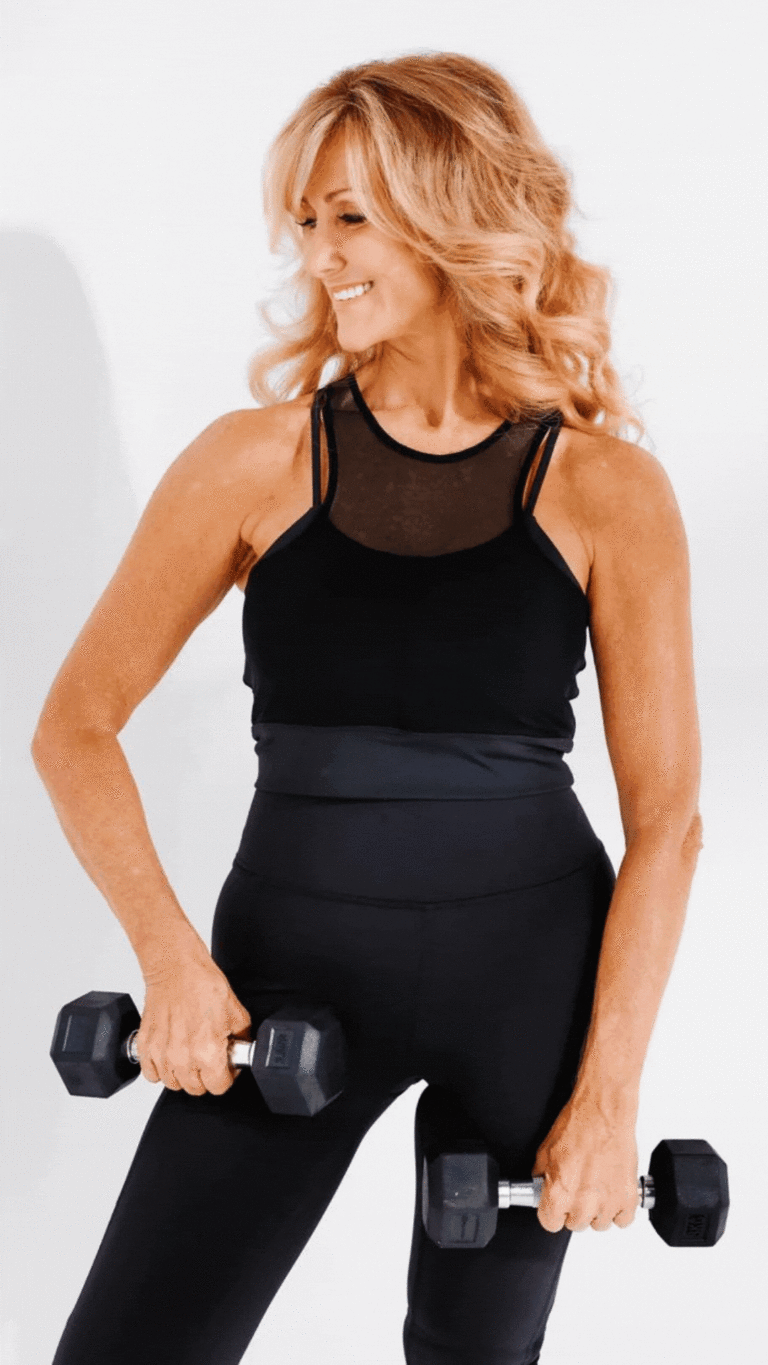

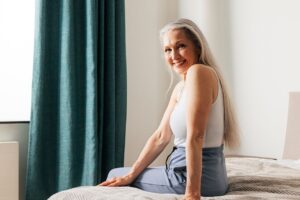


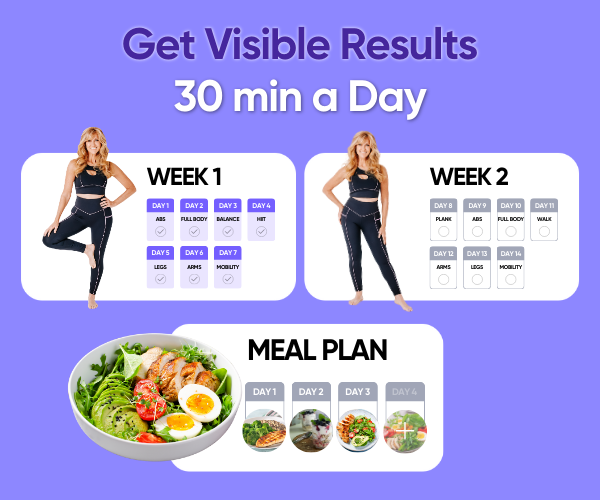
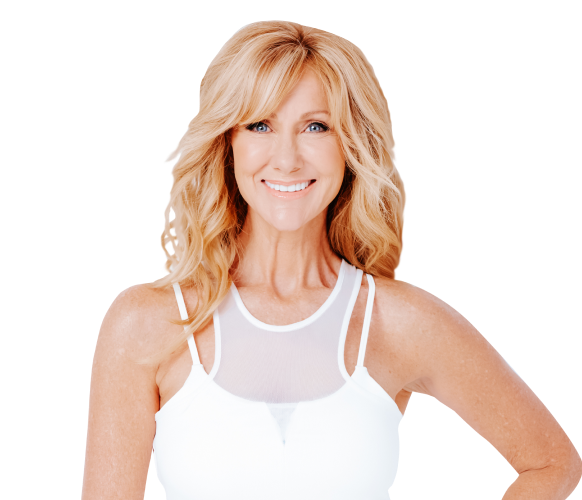
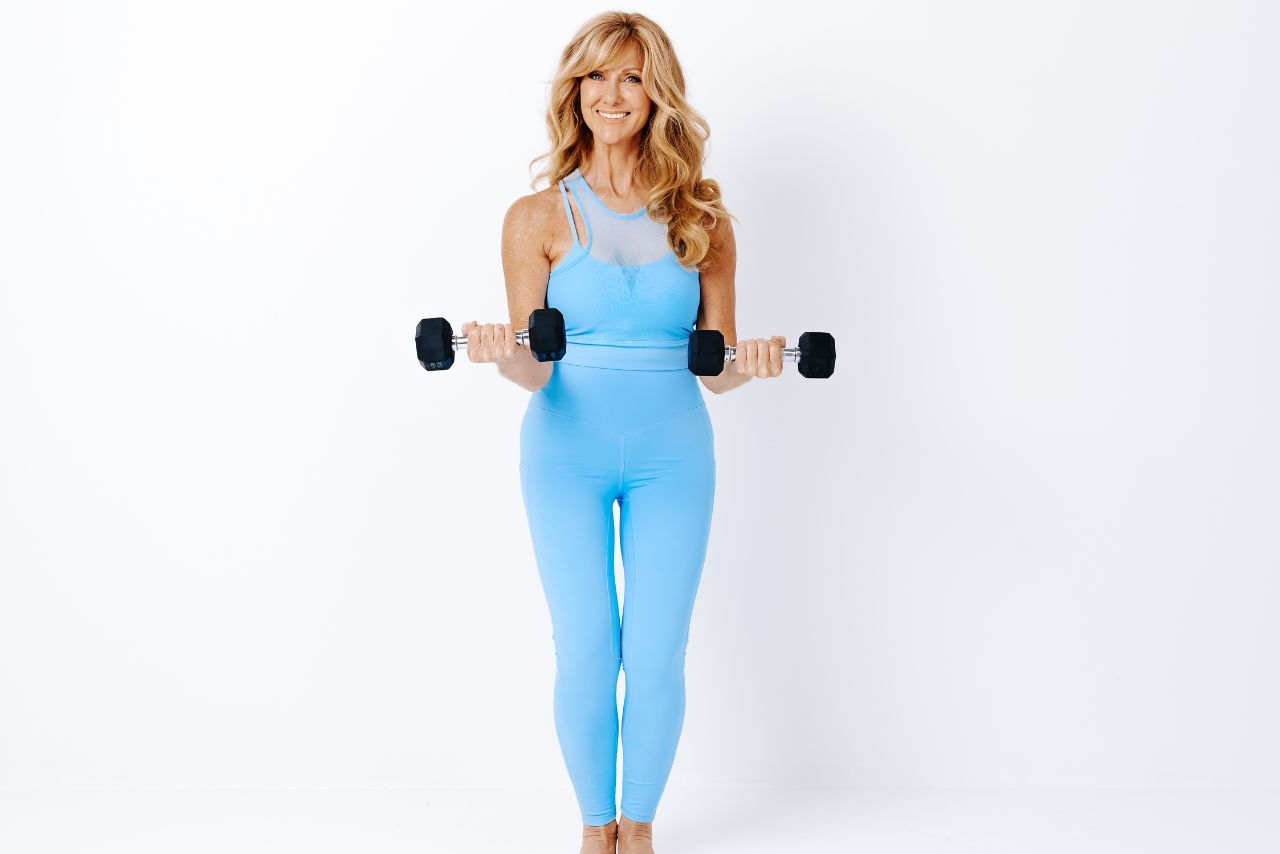
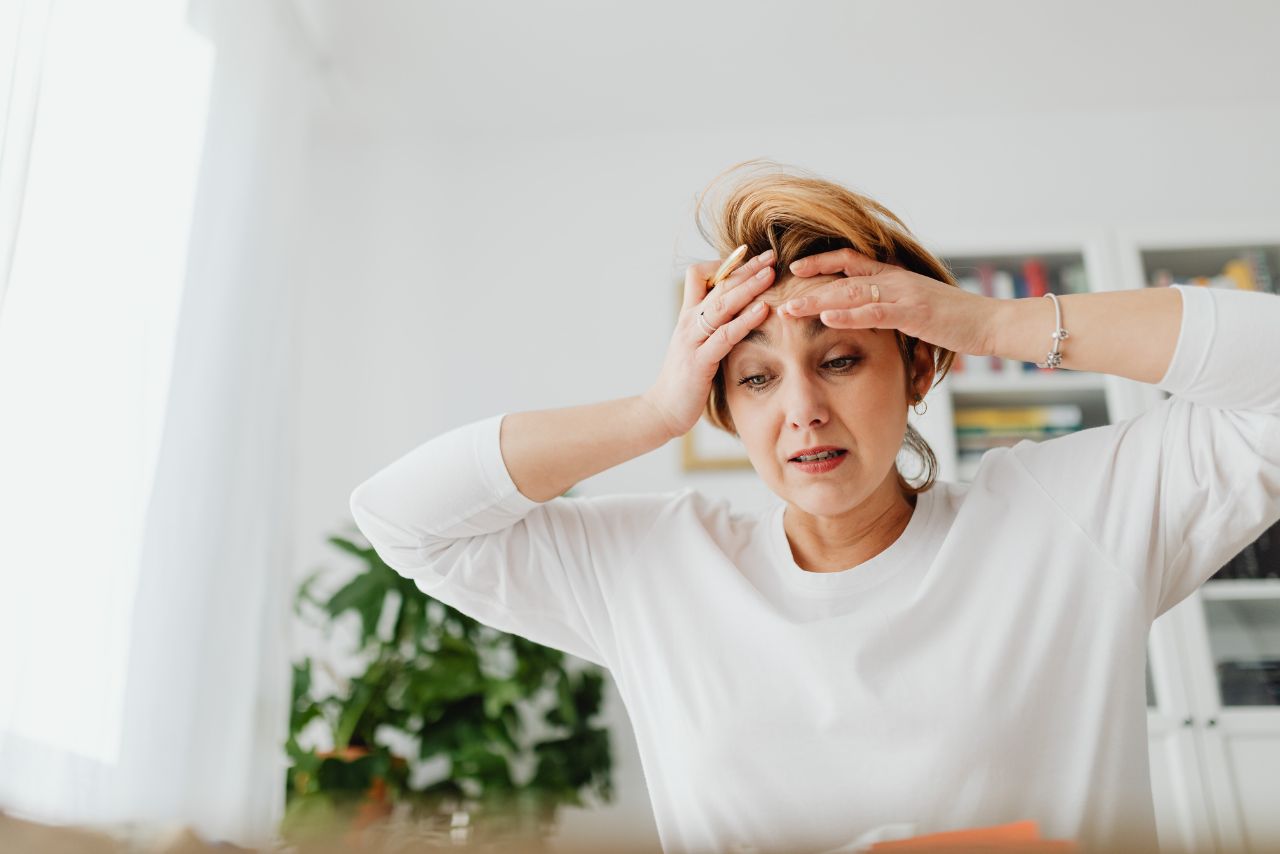
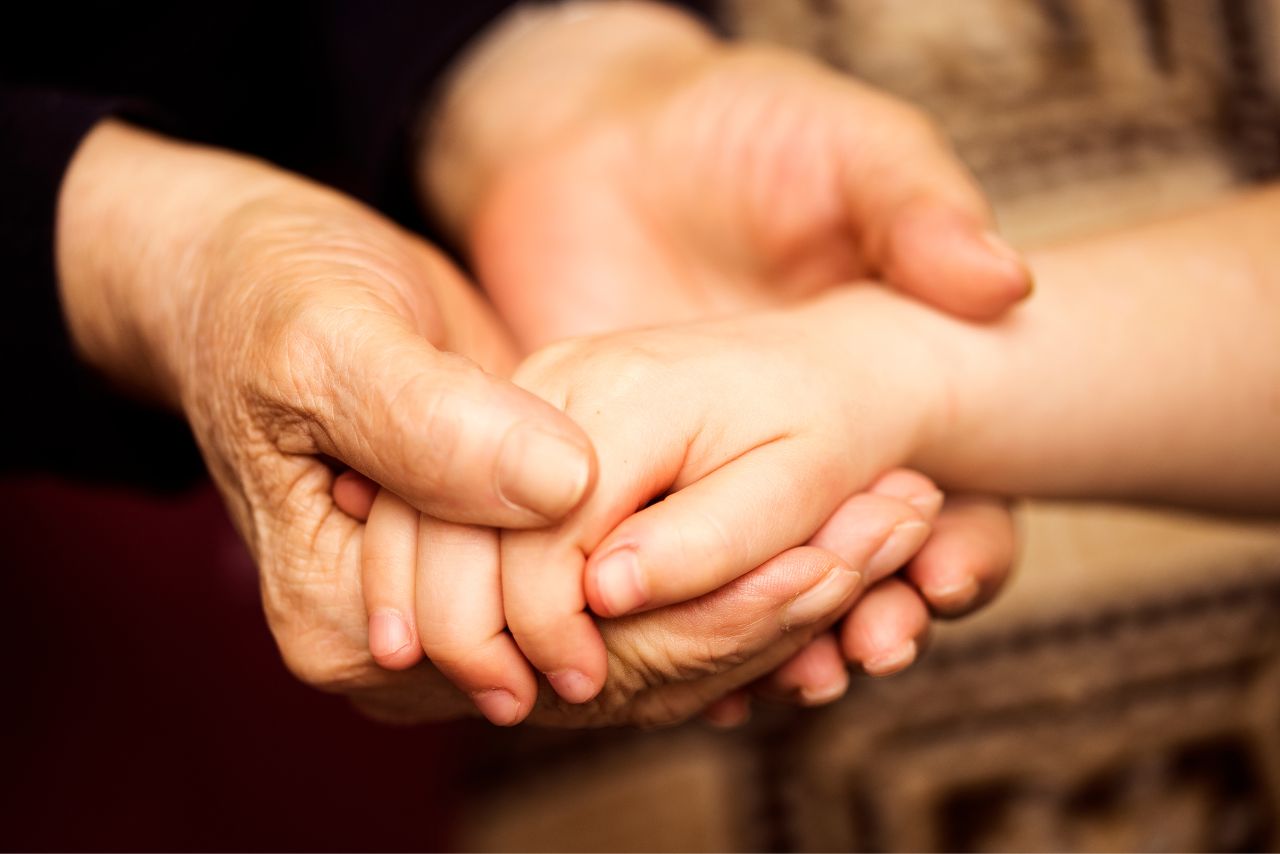
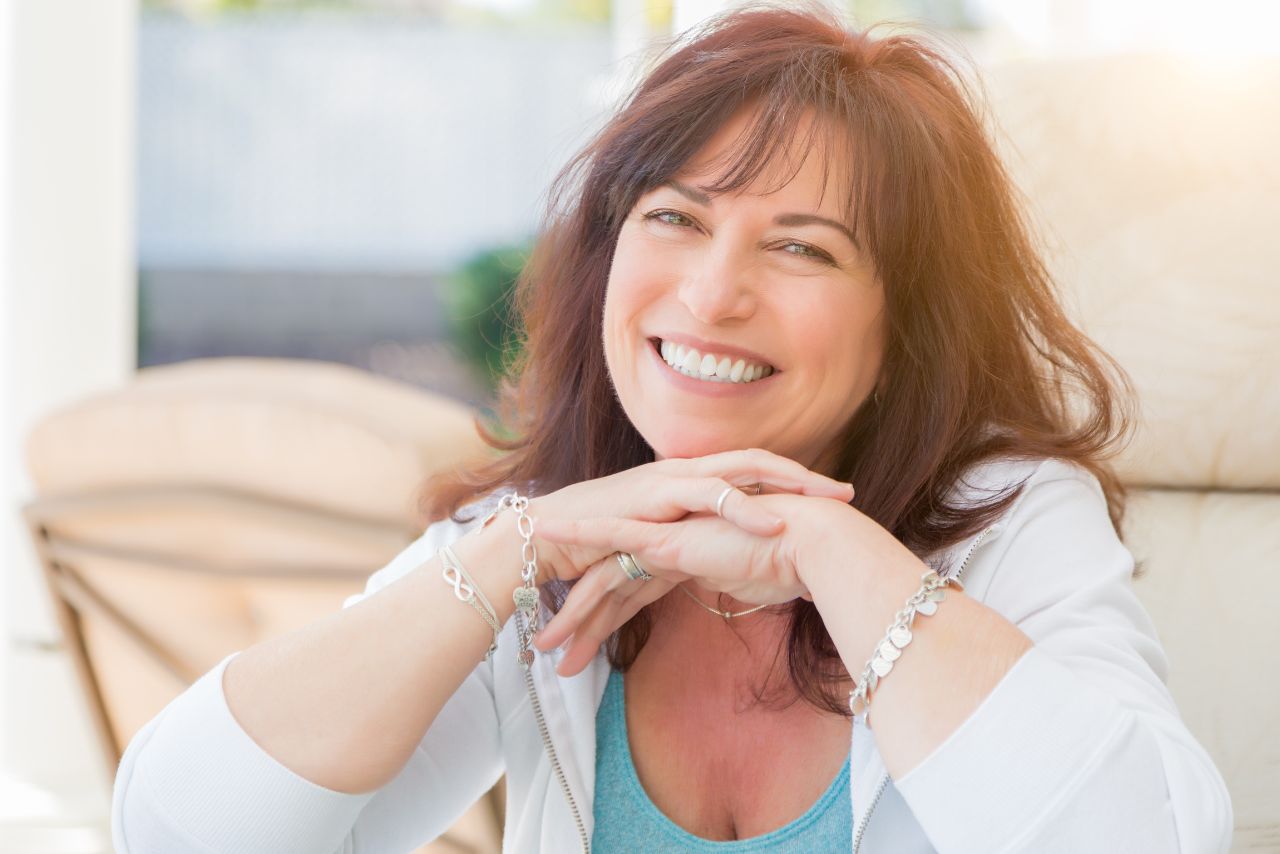
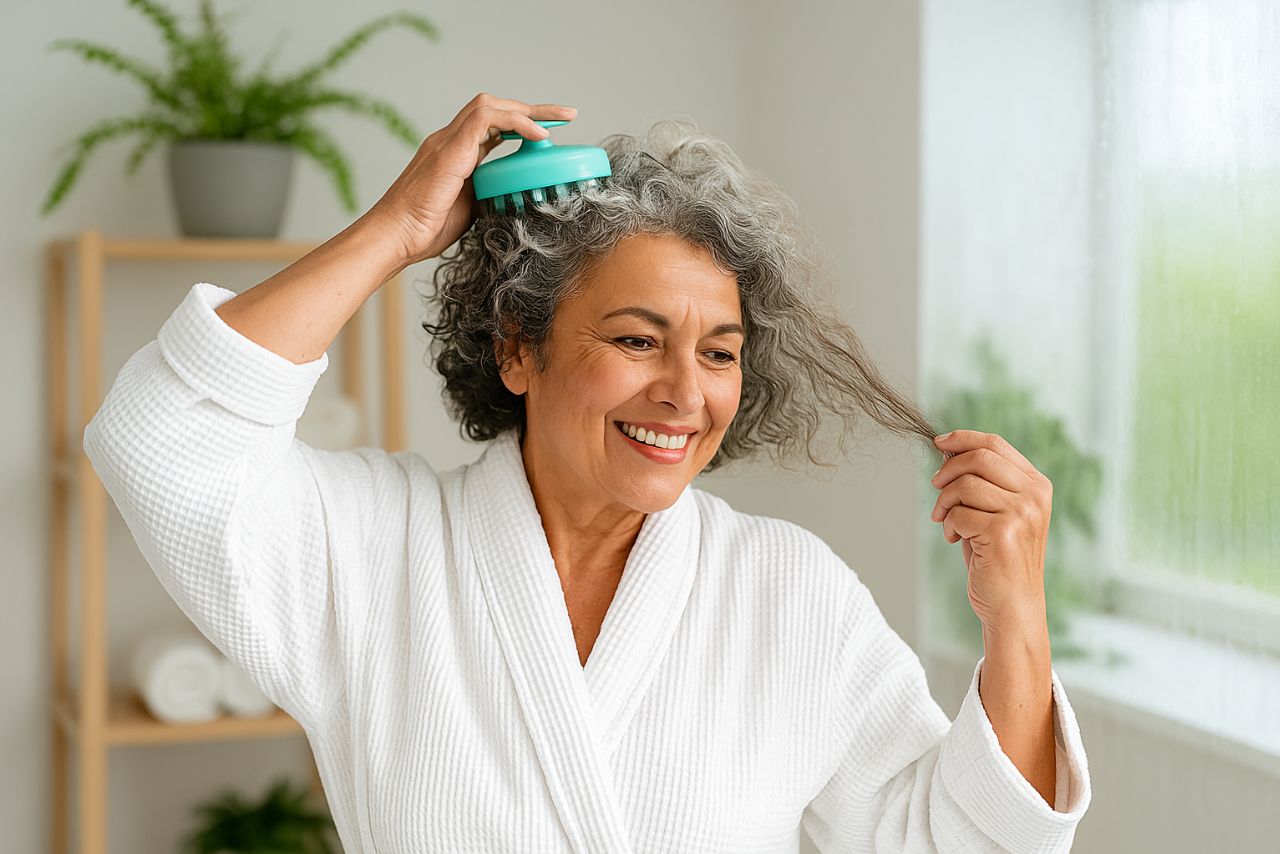
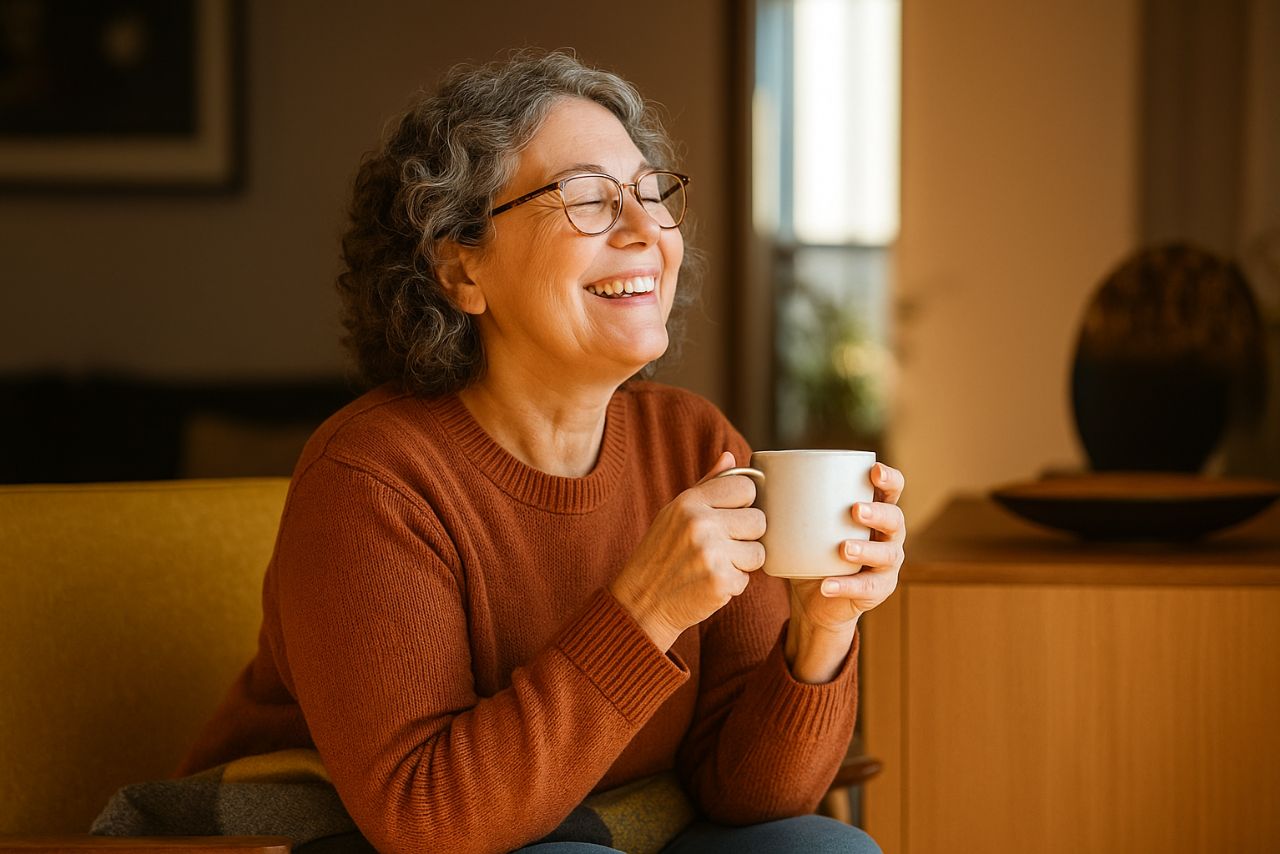

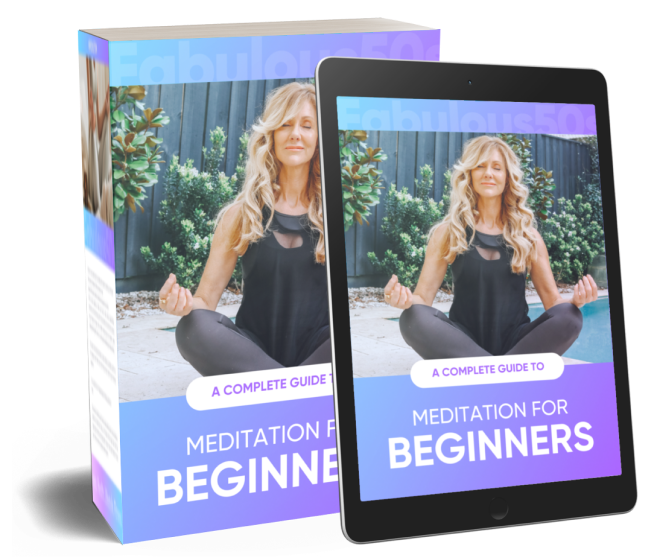
3 Responses
Thank you for highlighting such an important issue! It’s a wake-up call for all of us to prioritize strength and balance as we age. I love how you’ve outlined practical tips that can really make a difference. Looking forward to implementing some of these strategies in my routine!
This post highlights such an important issue! It’s eye-opening to see the various factors contributing to falls among women over 50. Thanks for sharing practical tips alongside the reasons—it’s essential to take proactive steps for our safety. Looking forward to more posts like this!
This post is so insightful! I never thought about how hormonal changes and muscle loss can impact balance as we age. I appreciate the practical tips you’ve shared for preventing falls. It’s a great reminder for all of us to stay active and mindful of our surroundings. Thank you for shedding light on such an important topic!